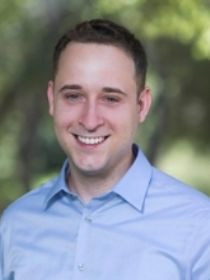Connect with David
About David
Broockman's research considers how voters and politicians decide, generally using field experiments and other approaches that allow for rigorous causal inferences to be drawn. Broockman’s published academic work spans the topics of public opinion, voter behavior, and research methodology. During his career in the private sector, Brookman designed and implemented field experiments at the AFL-CIO, the Analyst Institute, Google, and CREDO Action.
Contributions
Evidence that Legislators Grant Special Access to Donors
Politicians Think American Voters are More Conservative than They Really Are
How Race Influences Citizen Contact with Officeholders
In the News
Publications
Argues that members of Congress grant preferential access to purported political donors over concerned constituents. Is the first experimental demonstration of the biasing role of money in politics.
Employs a unique experimental design to demonstrate that black politicians are more intrinsically motivated to represent blacks’ interests than are whites. When the incentives of politicians to respond to a putative request from a black individual are experimentally reduced, black politicians generally continue to provide representation though white politicians generally do not.
